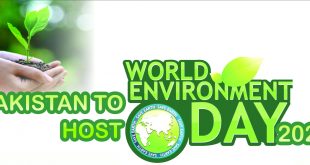Save Balochistan from Cancer
Cancer is a deadly disease which is becoming common nowadays. But, the growing prevalence of cancer among people in Balochistan is especially alarming. There are few treatment facilities available for cancer patients in some parts of the province. But, the private hospitals where these facilities are available are way too expensive. Hence, cancer is spreading in the province and is devouring precious lives. According to medical experts, more than Rs1.5 million is spent on initial diagnosis of the disease while an amount of at least Rs20 million is required for having a complete treatment. Balochistan is a poverty-stricken province and people cannot afford exuberant treatment. The WHO, the federal and provincial government are requested to take effective steps to launch treatment programmes so as to make the province cancer-free.
Ubaid Zehri (Khuzdar)
Development of Education
Nelson Mandela once said, “Education is the most powerful weapon which you can use to change the world.” Many other noted personalities maintain that the development of education is inevitable for the development of a country. In the 21st century, it has become irrelevant whether we go to other countries for higher studies or stay in our own to acquire that through online education. The invention of numerous gadgets manifests the innovation that has revolutionized the field of education. Today, education is well developed and we are under the control of it as it helps us to get all our problems solved. There is no denying the fact that without education nothing is possible, and it is a great strength to us. So, we must make all the arrangements to get our students educated in the fields that offer not only bright future to them but also the development and growth to their country.
Mohammad Panah (Larkana)
Sane Advice for CSS, PMS Aspirants
There is no blinking at the fact that the population of Pakistan has increased by a staggering 57 percent during the last 20 years, at an average rate of 2.4 percent per annum. And, it has now grown to such an extent that Pakistan is soon going to surpass Brazil to become the fifth most populous country in the world. However, many news items and editorials in reputed newspapers of Pakistan are, unfortunately, misquoting the figures from UNFPA report about the population of Pakistan. I think it is tantamount to misleading the people. It is pertinent to mention here that Pakistan’s population is 207.7 million, as per the figures of Census 2017 whereas those of Indonesia and Brazil, as per the figures provided by UNFPA, is 210.86 million and 211.3 million, respectively. Hence, this makes Pakistan the sixth most populous country in the world. Such acts of quoting incorrect facts and figures have disadvantageous effects on the knowledge of the people in general and that of students and policymakers in particular. Therefore, it is suggested that the students, especially the aspirants for competitive examinations, go through the research reports themselves instead of entirely relying on others’ write-ups.
Mohammad Panah Magsi (Larkana)
Climate Change & National Security
Over the years, the phenomenon of climate change has evolved from an environmental issue to a serious security challenge, which is currently being debated as a daunting challenge to development around the globe. In the present-day national security settings, climate change adds new hostile and stress factors having serious consequences. Climate change, if not combated effectively, may act as a catalyst for adverse political and social change. Pakistan is already facing multifarious security and development challenges and an addition of climate change to this list is likely to make the matrix even more complex.
Therefore, a collective effort by the state, the society and international community is indispensable. If a state is fragile and society is not able to cope with climatic hazards, environmental stress ensues; which if exploited by hostile forces, may generate negative societal consequences. Pakistan’s vulnerability can be assessed from its huge population of 207.7 million of which nearly 60 million are food deficient. Our youth is increasingly being affected by calorie insufficiency in their daily diet. Moreover, floods and droughts threaten agriculture and scarcity of water carries the potential to gravely affect human security. At the same time, societal capacity is hampered by extremely low rankings ion the human development index, coupled with poverty and societal fissures. Climate change is particularly a real national security threat.
Dr Zeeshan Khan (Lahore)
 Jahangir's World Times First Comprehensive Magazine for students/teachers of competitive exams and general readers as well.
Jahangir's World Times First Comprehensive Magazine for students/teachers of competitive exams and general readers as well.



